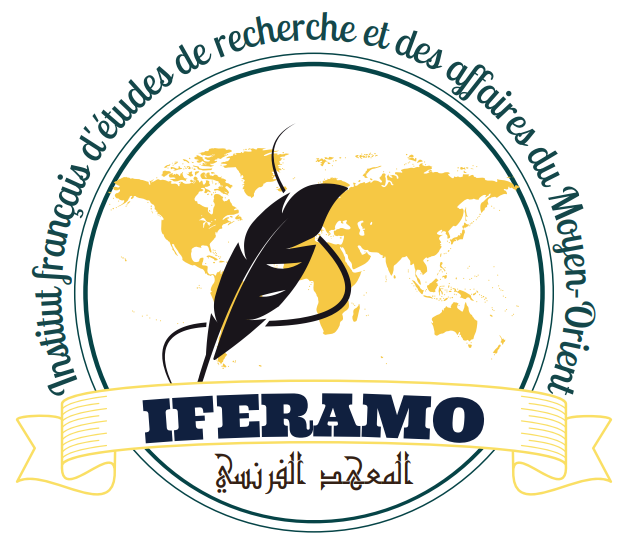فلسفة الدين بين العقل ومناهج التفسير Philosophy of religion between reason and methods of interpretation
د. جمال محمد الهاشمي
رئيس مركز الإصباح للتعليم والدراسات الحضارية والاستراتيجية
الملخص:
تناولت الدراسة النص بين فلسفة الدين ومناهج التفسير في قراءة تاريخية لأهم محطات التحولات الحضارية التي شكلت علم فلسفة الدين المعاصر؛ والتي ترتبط بالتحولات الفلسفية التي بدأت كتصورات عقلية منفصلة عن المعرفة التجريبية، وكان من الصعب الربط بينهما، ومن ثم تأرجحت الحضارة الغربية بين الأخذ بالمعرفة التجريبية وتأليه الطبيعة، أو بين المعرفة العقلية المجردة وتخيلاتها الذهنية القائمة على المبادئ الكلية كما في النظرية الافلاطونية للمثل. ومع انتقال الوحي الموسوي عبر اليهود إلى اليونان بدأت صراعات الفلسفة محتدمة حيث تحالفت الفلسفة العقلية مع الدين عبر صياغة اندماجية لمواجهة الفلسفة الطبيعية، وكان أفلوطين السكندري أول من دمج مناهج الفلسفة في التوراة وأسس لمدرسة اللاهوت الدينية، تبعه أوغسطين للدفاع عن المسيحية بمناهج الفلسفة، وكل منهما بدأ رحلته غنوصيا. ومع انتشار الإسلام ودخول الشعوبية في الإسلام أسس الموالي لفلسفة النقد اللاهوتي، واستعملوا المناهج الفلسفية والعقل في النصوص وترتب عليه تقديم العقل على النص، وتفنيد معتقدات السلف، ولخلع قداسة القرآن جعلوه مخلوقا وشيئا، قياسا على أن عيسى كلمة الله مخلوقا كما ورد في فلسفة اللاهوت المسيحية.
وعبر حركة الترجمات لتراث المعتزلة والمتكلمين والفلاسفة انتقل مضمون نقد اللاهوت المقدس بالعقل الذي أصله المعتزلة إلى الغرب، حيث بادر باباوات أوروبا اللاتين في تطويره قياسا على ما ذهب إليه المعتزلة لتفنيد القرآن الكريم والديانة الإسلامية وخصوصا بعد ترجمة القرآن مرتين، ومن ثم توسع فلاسفة أوروبا في استعمال مناهج الفلسفة لنقد الدين دون تمييز لكن ليس على أساس مبدأ النقد والموضوعية. وإنما من أجل تفنيد حقيقة وجود الأديان والانتصار للعقل التجريبي ومنطق العلمية المادية والطبيعة.
Abstract:
The study dealt with the text between the philosophy of religion and methods of interpretation in a historical reading of the most important stations of civilizational transformations that formed the science of contemporary philosophy of religion. which relate to philosophical transformations that began as mental concepts separate from empirical knowledge, and were difficult to connect with.
Western civilization oscillated between empirical knowledge and the deification of nature, and between abstract rational knowledge and its mental fantasies based on universal principles, as in the Platonic theory of ideals.
With the transmission of revelation through the Jews to Greece, the struggles of philosophy began, as rational philosophy allied with religion through an inherent formulation to confront natural philosophy.
With the spread of Islam and the emergence of populism in Islam, they established the philosophy of theological criticism, and used philosophical methods and reason in texts, which led to giving priority to reason over text.
During the Crusades, the translation movement became active, especially the heritage of the Mu’tazila and Muslim philosophers. Western theologians and philosophers benefited from the content of the criticism of the sacred theology with reason of the Mu’tazila and Muslim philosophers, and developed these sayings through the ecclesiastical clergy in Europe. . They approached the Mu’tazilites’ statements to refute the sanctity of the Noble Qur’an and the Islamic religion, especially after translating the Qur’an twice, then the European philosophers expanded in using philosophical methods, criticizing religion without discrimination on the basis of the principle of criticism and objectivity. Rather, in order to refute the reality of the existence of religions, to reject the sacred, and to triumph over empirical reason and nature.

